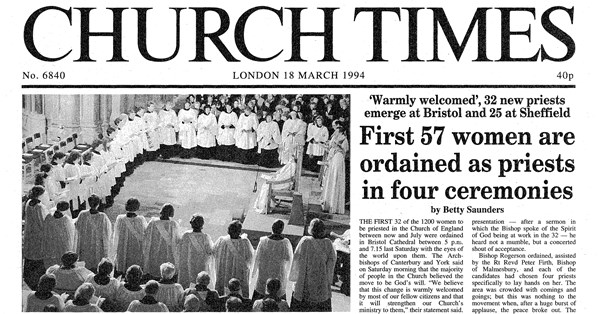Several of the priests were described as "self-supporting". I gather that means that they have to have a second job that gives them an income, because they're not being paid for their clergy duties. Is that common for priests in the UK? Is it (I hesitate to ask) more common with women than with men?
With the disclaimer that the closest I've come to being intimate with the situation in England, is reading job advertisements (and occasionally enquiring about interesting positions advertised, but after a couple of sad discussions I've worked out it's very unlikely I'll ever get a job in the UK, due to my citizenship status), and comments from colleagues who've worked there, I'd say it's more common than it might be in other places.
I was shocked at the number of jobs advertised as "house for duty," (ie. you get housed but not otherwise paid, with an understanding that you're not being expected to work full time). I'm told that it's common for clergy there to rely on a working spouse, but also that they have a high proportion of late vocations, who come already relatively well set up, financially, and who take on these roles as a way of easing toward retirement. I imagine some are also younger, bi-vocational folk (ie. combining ministry with other ways of making an income). What that says about the health of the church, I leave for others to ponder.
That said, there's more than one way to be self-supporting. Besides having a working spouse, I supplement my stipend by owning property which generates rental income. Not self-supporting, but it's very common here in Australia for clergy to earn additional income in that way.
Is it more common for women...? Women are proportionately under-represented in full time, stipendiary roles, especially those where they are "in charge" in a parish. We are over-represented proportionately in part time roles, assistant roles, and chaplaincy roles. So I would expect that it's more common for women to have unpaid (or very poorly paid) ministry roles.
This is anecdata, but it might be illuminating. When I had been ordained about two years or so, one of the bishops gathered together all the women clergy in the diocese who had young children (like, pre-school age), because she wanted to ask us about what barriers we faced and what the church might need to consider in trying to encourage more young women towards ordination. At that time, I was on 0.6FTE of a stipend. And of the women in that room, I had the largest time fraction. Some were running parishes while being paid for two days a week. Some had part time assistant roles. Some were part time chaplains. It was really eye-opening to see that, despite some of us very much wanting it, not one of us in that demographic had been offered full time pay (I don't say "full time work" because we all know there's no such thing as "part time" ministry!)


